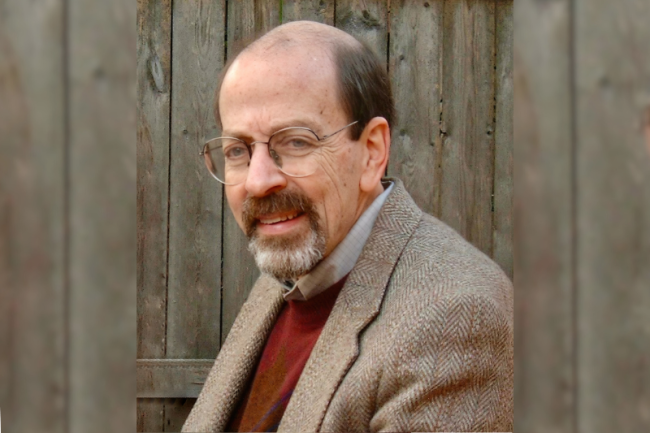
I first met Fred Rosen in 2000 in the “book display room” at a Latin American Studies Association meeting, where he was manning a table with a colorful selection of NACLA Reports on the Americas. He was also, by prior agreement, giving adequate space to a selection of New Press publications—including my own most recent book. He was pleased when I told him that I could claim to be an “original” Naclista, insofar as I had participated in 1967 in the founding meeting of NACLA at New York University. I did my best to entertain him with descriptions of the earliest days of the publication, when we set our IBM Selectric typewriters to create five-inch columns of prose suitable to be cut vertically and glued onto the first page of the NACLA Newsletter.
This first encounter set the stage for what would become a decades-long friendship that played out in Mexico City, Cuernavaca, the Upper West Side of Manhattan, and notably, Greenwich Village. My partner, Steve Hellman, and I moved to the latter when Fred persuaded his mother that we would be ideal sublet tenants for her townhouse apartment in Washington Mews, to which she was entitled as the surviving spouse of a former dean of the NYU School of Social Work, that is, Fred’s father.
Fred was what people in my generation would refer to as a “red diaper baby,” being the child of two deeply socially committed, progressive parents. I often thought that Fred’s quiet, modest way of engaging with politics was the happy consequence of his good fortune to have been brought up by such people.
Our friendship of many years was unquestionably consolidated by the fact that both Steve and I were so close in age to Fred that we had experienced almost identical processes of radicalization in a critical period marked by the civil rights and the anti-war movements. I was struck by the similarities in our respective development into political activists. One evening, we badgered Fred into describing to us not why he had decided to join the “Resistance” movement comprised of military age men or what had led him to decide to publicly burn his draft card, but rather how he actually managed to avoid military service, without being sent—as others were—to prison.
Fred recounted receiving his draft notice and the course of action—or, it’s fair to say, inaction—that he took. He obediently presented himself at Fort Hamilton, the site where he and others who were called up for military service were instructed to assemble. The recruits were physically examined and told they were fit for service. Then, the commanding officer in charge told everyone who was ready to serve to take two steps forward. At this point, Fred was left standing two steps back in the company of other young men, several of them African Americans who, he would soon learn, were not politically active war resisters, but simply guys who did not want to die in Vietnam. Like Fred, they had no clear idea of what fate awaited them as they elected not to take those two steps forward.
Through his parents’ progressive networks, Fred was put in touch with Bill Kunstler, an attorney, civil rights activist, and close friend and consultant to Martin Luther King. Kunstler was probably best known as the lead defense lawyer for the “Chicago 7,” a group of anti-Vietnam War activists who had instigated and led public acts of resistance during the Democratic National Convention in 1968 with the explicit purpose of disrupting the Convention to drew attention to their opposition to the war. Kunstler advised Fred that his best course of action would be to do nothing—to just wait and see what his draft board would do next.
As it turned out, the draft board decided to reclassify Fred and others who refused to take up arms as “1-A,” a draft status that would place them at the very front of the line for immediate deployment. In a case that went all the way up to the Supreme Court, the Resistance movement people argued that local draft boards had no authority to “reclassify” those they regarded as “draft dodgers” because draft boards have no judicial powers. And so he waited. When no one phoned or came around to see him, Fred just got on with his life.
And so it was that Fred ended up in a PhD program at The New School in New York where he earned his doctorate. He was soon hired to teach at Vassar College, where he quickly became known and admired by students for his resistance to the war and also for organizing trips to Nicaragua, during which students saw first-hand the transformations brought about by the victory of the Sandinista revolutionaries.
According to Fred’s brother, Bob Rosen, it was the Nicaragua trips that cost Fred his job at Vassar. When he came up for tenure, he was denied at the behest of a clack of conservative colleagues backed by an angry alumnus trustee for whom the idea of exposing students to a post-revolutionary experience was beyond unacceptable.
Luckily for all of us, the generations of NACLA Report readers, the loss of his job at Vassar led Fred to take another path, one that he had long thought to pursue, which was journalism. At the time, the focus of his journalistic contributions was the Hudson River Valley, then gravely under threat from pollution. Fred founded the magazine UpRiver/DownRiver to address the environmental changes underway.
As Deidre McFadyen recounts, Fred went on to join NACLA in 1992, as the publication marked its 25th anniversary. Over the next two decades and beyond, Fred performed masterful work as editor, chief administrator, fund raiser, and guiding light of NACLA.
Judith Adler Hellman is a senior scholar and professor emerita of political and social sciences at York University. She was a member of the NACLA staff for a year in 1970 and later served on NACLA’s Board of Directors and Editorial Committee.

